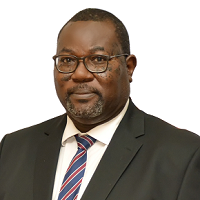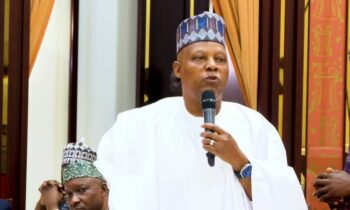… oil benchmarks $57 per barrel, N410/$1 exchange rate

… Senate President says he supports collection of VAT by FIRS until legal outcome is determined
Olusola Bello
The senate on Wednesday approved N13.98 trillion for the 2022 fiscal year as proposed expenditure and Federal Government’s revenue projection of N8.36 trillion
It also passed the 2022-2024 Medium Term Expenditure Framework and Fiscal Strategy Paper (MTEF/FSP) ahead of the expected presentation of the 2022 Appropriations bill to the National Assembly by President Muhammadu Buhari.
The passage of the 2022-2024 Medium Term Expenditure Framework was sequel to the consideration and deliberation of a report by the Joint Committee on Finance; Local and Foreign Debts; Banking, Insurance and other Financial Institutions; Petroleum Resources (Upstream); Downstream Petroleum Sector and Gas.
Chairman of the Senate Finance Committee, Senator Solomon Adeola, presented the Joint Committee report.
Senators took turns to debate the MTEF/FSP document, which was submitted to the legislative arm for approval last month by Buhari.
Contributing to the debate, former Governor of Benue State and Chairman of the Senate Committee on Power, Senator Gabriel Suswam, lamented that government borrowing had been increasing yearly, and wondered when it would stop.
According to him, the country’s budget deficit has gone beyond “the threshold of the Fiscal Responsibility Act.” Suswam frowned on irrelevant waivers granted businesses even as the country operated a deficit budget.
The former governor also expressed displeasure that the country was dishing out N2.4 trillion as waivers when it was having over N5.6 trillion deficit.
He stated, “The issue of borrowing and deficit. We now have a deficit that has been growing year in, year out. When is it going to stop? These are issues that agitate the minds of Nigerians, especially when it concerns borrowing.
“We have a deficit that has gone beyond the threshold of the Fiscal Responsibility Act (FRA) 2007, which then means that we (must) amend the FRA so as to accommodate this deficit.
“The FRA stipulates a threshold of three per cent. Last year, it was above the threshold, this year, it is above by six per cent.
“In managing an economy, we need to combine fiscal policies with monetary policies.”
On his part, Chairman of the Senate Committee on Aviation, Senator Smart Adeyemi, stated, “There was nothing wrong with borrowing, provided it is channelled towards improving infrastructure, such as roads, health facilities, as well as empowering Nigerians.”
The senate thereafter approved the daily crude oil production of 1.88 million barrels per day (mbpd), 2.23mbpd, and 2.22mbpd for 2022, 2023 and 2024, respectively, “in view of average 1.93mbpd over the last three years and the fact that a very conservative oil output benchmark has been adopted for the medium term in order to ensure greater budget realism.”
It also approved the benchmark oil price of $$57 per barrel; adopted the exchange rate of N410.15/$ proposed by the executive for 2022-2024; and gave its nod to the projected Gross Domestic Product (GDP) growth rate of 4.20 per cent; as well as 13 per cent inflation rate.
Aside from this, it also approved fiscal deficit of N5.62 trillion, and new borrowings of N4.89 trillion – an amount that includes foreign and domestic borrowing – subject to the provision of details of the borrowing plan to the National Assembly.
The senate approved other parameters, such as statutory transfers totalling N613.4 billion; debt service estimate of N3.12 trillion; sinking fund to the tune of N292 billion; pension, gratuities and retirees benefits of N567 billion.
Out of the aggregate Federal Government’s expenditure of N13.98 trillion, the upper chamber approved the sum of N6.12 trillion for total recurrent (non-debt); N3.47 trillion as personnel cost for Ministries, Departments and Agencies (MDAs); N3.26 trillion for capital expenditure (exclusive transfers); N350 billion for special intervention (recurrent); and N10 billion for special intervention (Capital).
Meanwhile, the Senate president, Ahmad Lawan, has said he supports the continuous collection of Value Added Tax (VAT) by the federal government until the final judgment of the Supreme Court on the matter.
On Value Added Tax (VAT), Lawan said there was nothing wrong in continuing with VAT since there was no finality in the judgment yet.
The senate president said, “Therefore, we shouldn’t confuse our system until there is a very clear cut, definite judgment by the Supreme Court. We should go ahead with VAT as part of the resources available to us”.
Lawan urged the Federal Inland Revenue Service (FIRS), Nigeria Customs Service (NCS) and other major revenue generating agencies to strive to bring in more revenue into the coffers of government.
According to him, “We have given them all the support that is necessary. They have no reason not to improve on their collection.”




